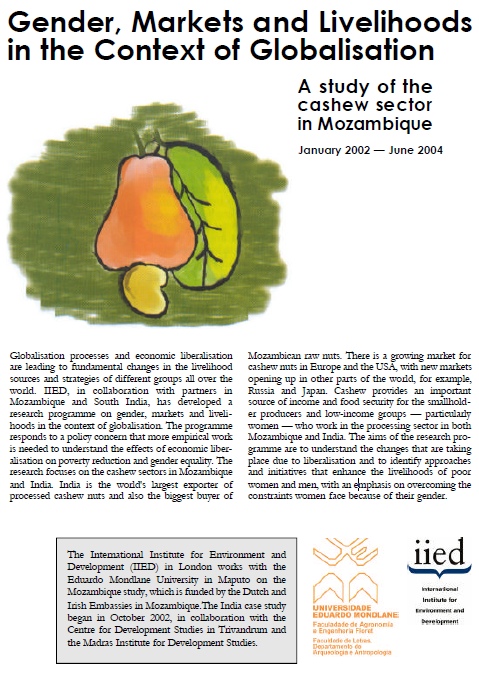Resource information
Globalisation processes and economic liberalisation are leading to fundamental changes in the livelihood sources and strategies of different groups all over the
world. IIED, in collaboration with partners in Mozambique and South India, has developed a research programme on gender, markets and livelihoods in the context of globalisation. The programme responds to a policy concern that more empirical work is needed to understand the effects of economic liberalisation on poverty reduction and gender equality. The research focuses on the cashew sectors in Mozambique and India. India is the world's largest exporter of processed cashew nuts and also the biggest buyer of Mozambican raw nuts.
There is a growing market for cashew nuts in Europe and the USA, with new markets opening up in other parts of the world, for example, Russia and Japan. Cashew provides an important source of income and food security for the smallholder producers and low-income groups — particularly women — who work in the processing sector in both Mozambique and India. The aims of the research programme are to understand the changes that are taking place due to liberalisation and to identify approaches and initiatives that enhance the livelihoods of poor women and men, with an emphasis on overcoming the constraints women face because of their gender.


